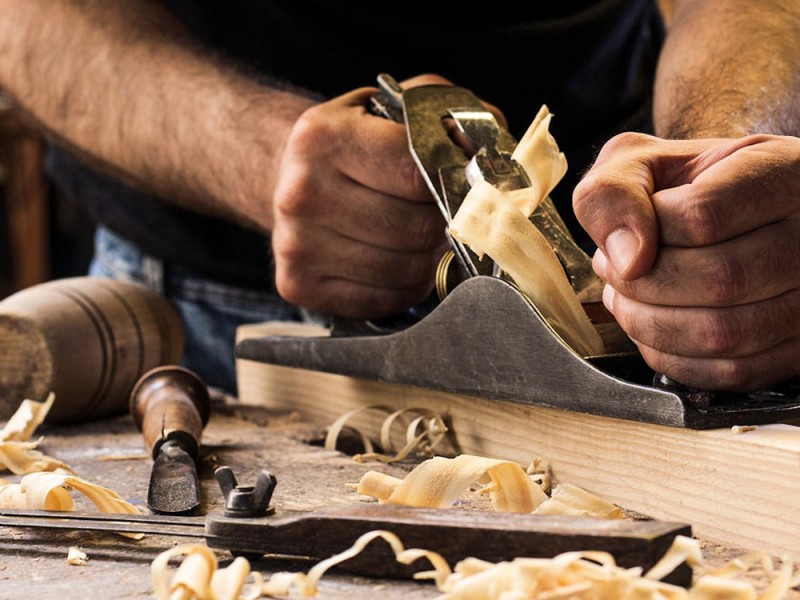
 2020-04-06
2020-04-06
Under Curfew: Small Enterprises call for mechanisms to stop its collapse due to the Corona Criss
Amman- 6/4/2020 - The global Corona pandemic has cast its dark shadows on big and small businesses alike. Indeed, various sectors in Jordan, especially those that are populated with small and micro enterprises are currently under tremendous pressure that might lead to the closure of some of them.
In meetings with the Tamkeen for Legal Aid and Human Rights team, business owners from both genders have asked for the government’s help to overcome this crisis. Their suggestions include that the Social Security Corporation pay a segment of the workers’ wages; to be provided with facilitations so they could obtain loans; lowering of taxes or even freezing it for 6 months; and the postponement of loan payments to banks for a year, as well as providing them with assistance so they could secure their livelihoods during the current crisis.
Tamkeen included these meetings in a report it published that monitored their status. The monitoring covered the period that followed the Prime Minister’s announcement of Defence Order (2) on March,20,2020, which imposed a Kingdom-wide curfew to stop the spread of the virus.
The report highlights the impact of the crisis on these enterprises, as their revenue was negatively affected by their closure due to the curfew and demands dropped. These enterprises also struggled as supply chains stopped, thus stopping their income and their obligations accumulated on them; from stores, offices or warehouses’ rents; electricity and water bills; the expenses related to their materials, and their family obligations, amongst others.
In the report, Tamkeen shed light on the struggles faced by the owners of these enterprises. Due to the Corona Crisis, these institutions are economically struggling and are hoping that the government will be able to create mechanisms that will protect them from major losses or even collapsing.
“Since the start of the crisis, I did not earn even 1 JOD. I was forced to close my barber shop, even though it is my only source of income”. Eyad, the owner of a barber shop said, admitting that he paid both his workers half of their wages, which is usually 250 JOD, due to work stopping.
Eyed then wonders aloud about what will happen in the upcoming days, and how will he be able to pay the accumulated rent on his store; or pay his workers later on and also provide for the needs of his family.
- interview was conducted with an enterprise owner whose institution employs 50 workers, and their total monthly salary reaches 60,000 JOD. He said that due to the crisis all work has been stopped, whether those related to the operation and maintenance of implemented projects or others which are still being implemented. The stoppage will result in fines due to delays; which in turn will affect the wages of the workers, as he will be unable to pay them, in the event that he does not himself receive payments from his clients to whom he implements these projects.
These two stories are just representatives of the tens of stories that indicate the struggles of small business owners, who are unable to pay the wages of their workers. As a result, some of them will have to lower these wages; others will terminate their services under the pretext that in the event they do so, it is because of the exceptional circumstances that the country and the world are going through. Thus, and in their mind, firing these workers is not considered arbitrary, but rather caused by these circumstances, which were not faced before.
Sectors in which women work have also suffered great losses. These include beauty centres and salons, which were closed because of the curfew, and even before it struggled as the number of customers dropped due to fear of using its tools, which would then transmit the virus to them. Another reason to the drop relates to the cancellation of social events, like weddings, as they are the main source of revenue for these institutions.
Women owners of productive kitchens have also been affected by the crisis, since their work depends on orders. Due to the curfew though, these orders were cancelled which led to them losing their income.
An owner of a productive kitchen said that her struggles began rights after the first case of corona was recorded in Jordan. Since then, the number of orders began dropping as customers were afraid to order food, which was prepared outside their homes. Following the curfew, these orders completely stopped.
Similarly, small restaurant owners have suffered great losses as a result of the closure of their stores. A restaurant owner in Azraq told Tamkeen: “I cannot pay the wages of my workers, since my restaurant is closed and I have no income. We live daily based on the income we earn that day.”
Another category that was affected is owners of men barber shops, as they stopped working and their struggles began. Some told Tamkeen that they expect things to get even worse if the situation remains as it currently is for much longer. The owners said that they rely on their daily income to cover their expenses and obligations. Moreover, the majority of them do not have any savings, which they could use to cover these obligations.
The report also highlights the status of workers in small kindergartens, who operate them from their own homes. Due to the Corona Crisis, the majority of parents did not pay the fees for the month of March, leaving them in difficult positions. A kindergarten owner said that she is struggling because the kindergarten income used to help her cover her basic needs, like rent and bills, but now without work, she does not know how she will manage.
Another sector is Tourism offices, which struggle is further compounded not just by the current crisis, but by its ramifications as well in case boarders remain closed and trips are limited. In such a case, unemployment will be a real threat to many workers in the sector; especially since a number of offices will close if the crisis continues. In fact, numerous owners of these offices confirmed that reservations have been cancelled till the beginning of next year.
Even though the curfew decision was taken to curtail the spread of the virus, it led to the stoppage of many sectors. These include: transportation, construction material shops, mechanics, sewing, sweets, retail and wholesale of clothes and house supplies, as well as numerous other small sectors.
Mohammad (alias) is an Egyptian sewer, who owns his own shop and is the only worker in it. He talked to Tamkeen about the current bad situation he finds himself in because of the crisis. He said he is unable to cover his obligations, which include the shop’s rent, as well the expenses of his tools; since he stopped working because of the curfew.
The construction sector is one of the biggest employers of workers. Currently, the sector is struggling from the huge damage it incurred; as well as the auxiliary professions related to it, which comprise of tile and paint workers, loading and unloading, electrical installations, gypsum, shortening, decoration, and others.
Similarly, blacksmith shops have also been negatively affected, and its workers are living in difficult conditions. These workers depend on customers’ orders, which have stopped after the curfew’s entry into force, which disrupted their current work and put a stop to any future orders.

